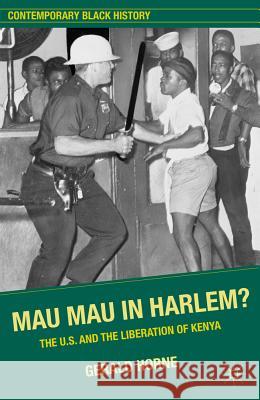Mau Mau in Harlem?: The U.S. and the Liberation of Kenya » książka
Mau Mau in Harlem?: The U.S. and the Liberation of Kenya
ISBN-13: 9780230339026 / Angielski / Miękka / 2012 / 334 str.
From the inception of a the British colony in Kenya in the late 19th nineteenth century, the United States has been intimately involved in the country's development. African-Americans were particularly attracted to Kenya from early on, not least because the apparent "black-white" conflict there, while symbolizing Africa's struggle for freedom from European colonialism, also seemed to mirror what they were experiencing in the U.S. The struggle in Kenya symbolized Africa's struggle for freedom from European colonialism. It was thought that lessons could be learned from Kenya, demonstrated when Malcolm X proclaimed a "Mau Mau in Harlem" might be necessary. To counter Soviet propaganda that suggested that the U.S. was supportive of colonialism, John F. Kennedy was among those who backed a campaign to bring Kenyans to the U.S. for higher education - included among these students was Barack H. Obama, Sr., who was brought to the University of Hawaii. Based on extensive archival research in the U.S., the U.K., and Kenya, this book not only sheds light on the historical forces that created a U.S. President but also the unshakeable bonds that historically have historically conjoined Black America, Africa, and the United States as a whole. Horne offers important context in understanding how a man of Kenyan descent could one day occupy the White House.











